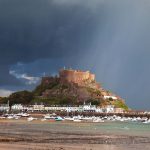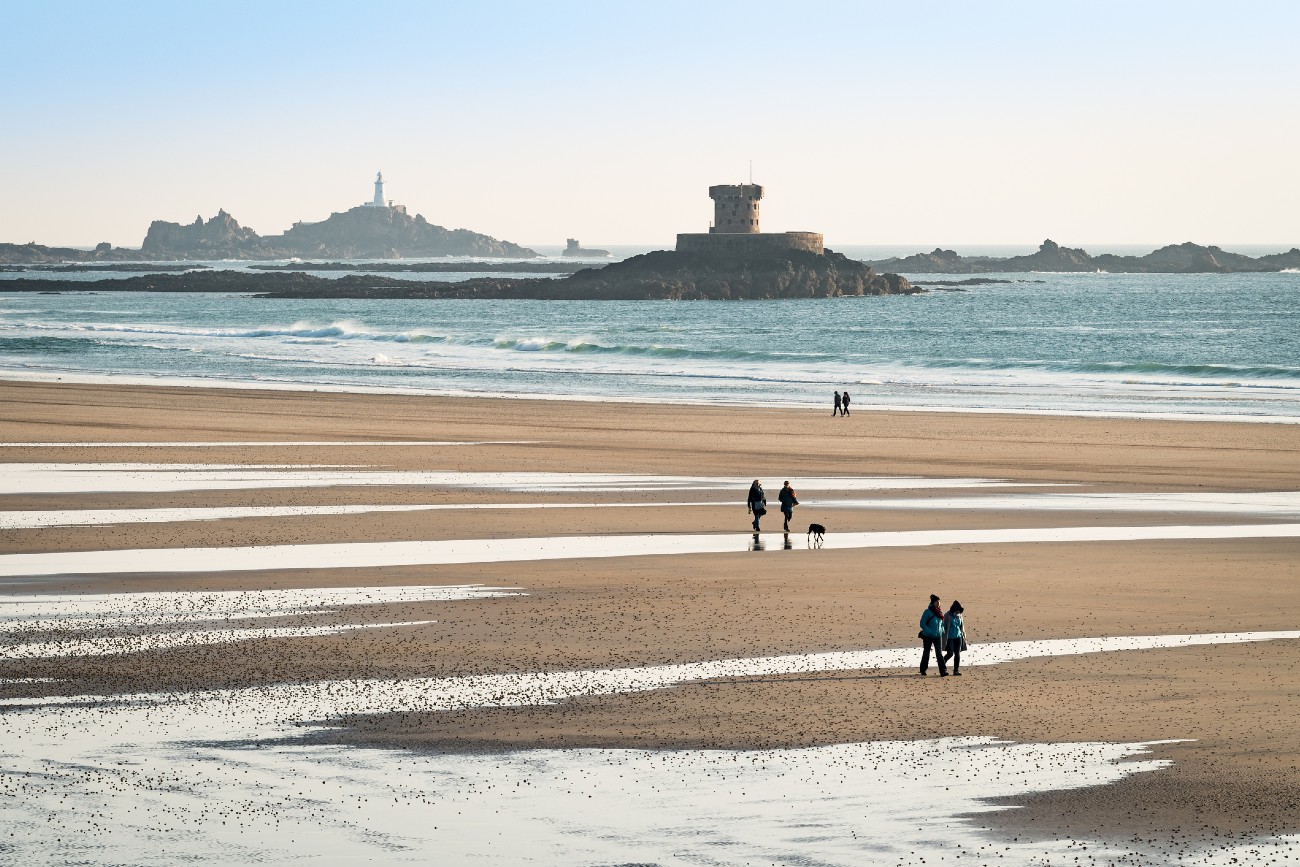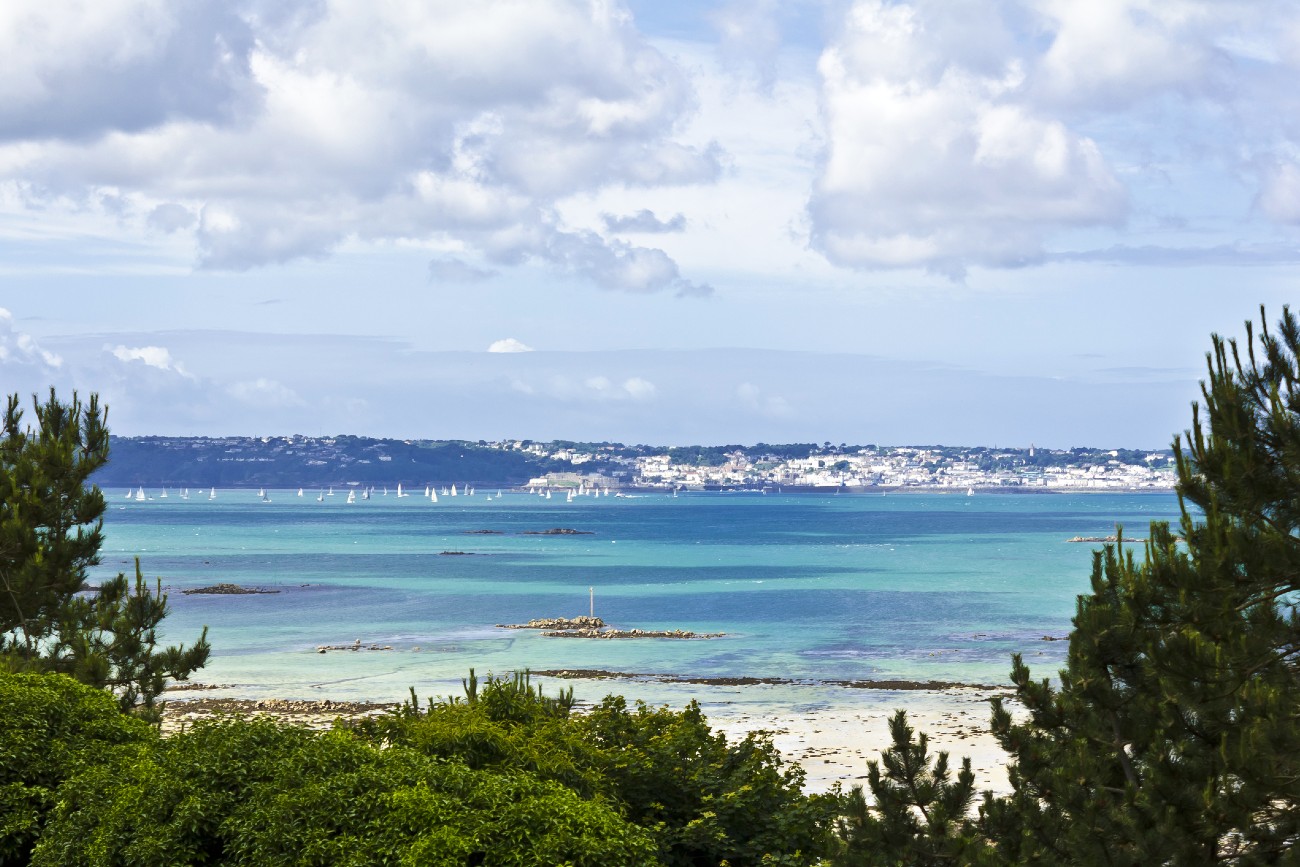
Living on an island may evoke an idyllic dream of palm trees, golden sandy beaches, and blue azure skies, then you wake up from your daydream, get back to reality, and realize that the Channel Islands are by no means tropical.
However, this does not detract from their beauty and appeal! How does one survive working and living in the British Channel Islands?
Island living is not without its challenges that require knowledge and skills to overcome to enjoy this lifestyle’s full spectrum. Accommodation, cost of living, the remoteness of the islands, and the unpredictable weather provide the most meaningful challenges to most newcomers.
The Channel Islands may not be tropical, but that does not mean they are not a paradise that many find attractive as a place to live and work. The wild scenery is spectacular, and the islands offer a quiet existence for many people who want to break from the large city hustle and bustle. Surviving in the Channel Islands is not without its challenges, but it can be a rewarding and satisfying location to live with a little preparation and forethought.
How To Survive In The Channel Islands
Surviving in the Channel Islands has less about catering to your basic needs, such as food, water, shelter, and warmth, and more about dealing with the specific challenges associated with living on these Islands.
Some of the challenges for surviving on the islands are:
- finding accommodation
- the cost of living
- the remoteness of the islands
- the weather
Surviving these challenges regarding island living sometimes requires a little ingenuity and planning.
Finding Accommodation in The Channel Islands
Finding long-term accommodation is one of the most challenging aspects of living in the Channel Islands. Housing is scarce, expensive, and subject to many property ownership and rental restrictions.
Tourism is a large part of the Channel islands economy, and this type of accommodation makes up a large part of the available housing. However, it is not practical to stay in tourist accommodation if you are relocating to the Islands or working on the Islands.
The tourist housing would simply be too expensive to sustain over an extended period. You may wonder whether renting or purchasing a home would be a better option, but this is where the challenge deepens.
In Guernsey, local market housing, making up the bulk of the housing market, is strictly only for people born on the Islands, with family ties to the Islands, or those in a profession filling a skills shortage gap in the community.
The open housing market, available to everyone else, is typically larger and more expensive than local market options but only makes up 10% of the available accommodation.
Accommodation in Jersey is a little easier but nevertheless requires a permit to rent or buy property. Permits are granted based on several citizenship, professional, and residential status criteria.
The main status categories are as follows:
- Entitled. Includes residents who have lived on the Island for more than 10 years and allows you to buy, sell, or rent property without restriction.
- Licensed. Those with a licensed status are essential employees who are allowed to rent or buy a single property with some restrictions.
- Entitled for work. This status is granted if you have lived on the Island for a minimum of 5 years and allows you to rent a property with no restriction, but you can only purchase if you have a spouse with a higher status.
- Registered. The registered status caters to everyone who does not qualify for any of the other status levels and only allows a person to rent a boarding house, tourist accommodation, or lodge in a private home owned by a person with a higher status.
Survival Skills Needed For Accommodation In The Channel Islands
The survival skill you need to navigate the challenging accommodation minefield in the Channel Islands is establishing a relationship with a local estate agent.
A local estate agent will have local knowledge regarding the regulations for accommodation, what’s available at any given time, and the best places to stay for your sojourn on the Island.
The rules regarding accommodation vary across all the islands in the archipelago, making it all the more difficult for someone unfamiliar with the region to find a place to stay.
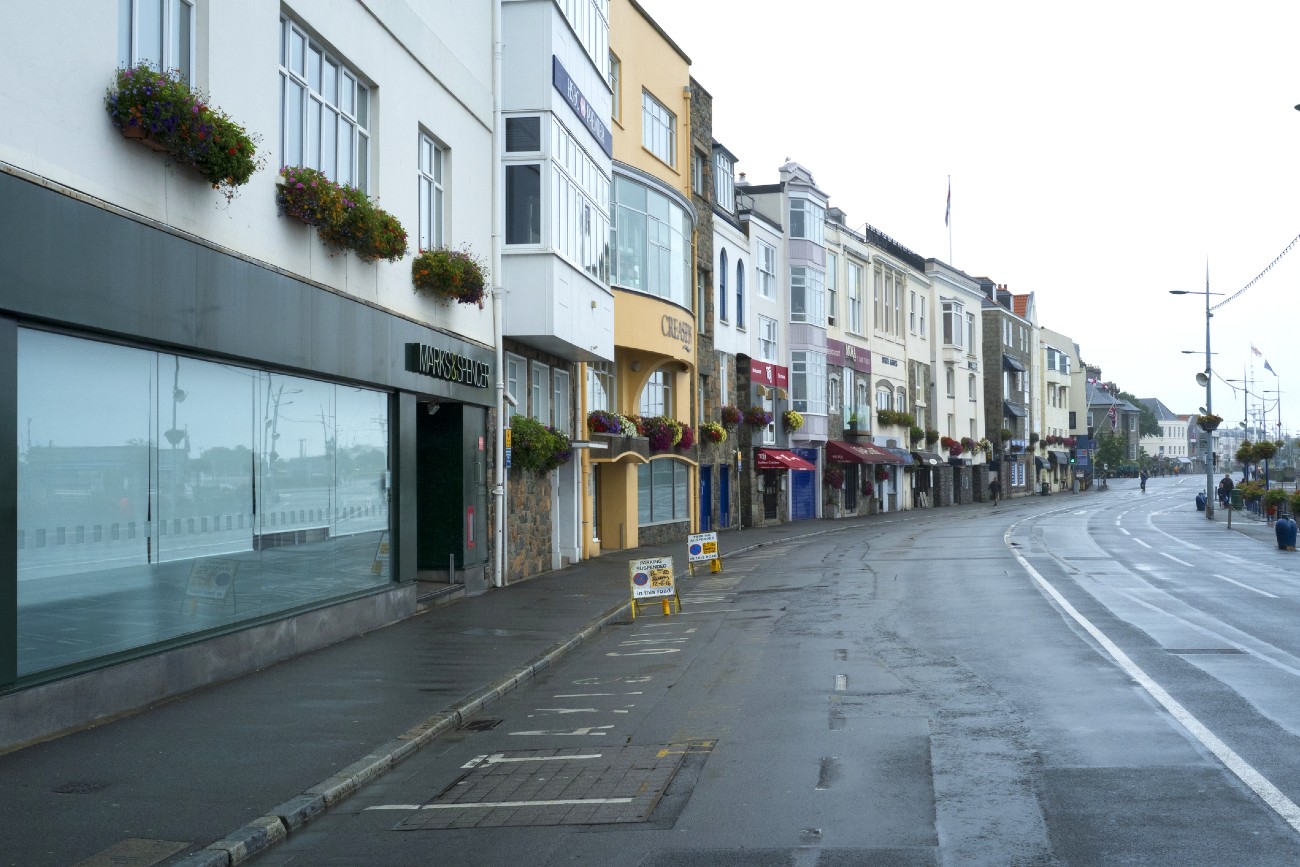
Saint Peter Port buildings on the street facing the harbor in Guernsey
Surviving The Cost Of Living In The Channel Islands
Accommodation is not the only pricey commodity in the Channel Islands. The region has limited resources, requiring many of the items for day-to-day living, such as furniture and food, all imported from mainland Europe or England.
Food items can be particularly pricey given the distances required to transport these items to the islands while keeping them fresh. Technology items such as computers and mobile phones are also generally more expensive to purchase and difficult to repair.
Survival Skill To Survive The Cost Of Living In The Channel Islands
To beat the cost of living and stretch your income a little further, you can employ several survival tactics to offset the high cost of living in the Channel Islands.
Eating out at restaurants on the Islands is similar in cost to eating out in London. While this may be good for a periodic treat, you can reduce your costs by cooking at home.
You can limit your food costs by frequenting local village markets for your fresh groceries, which are substantially cheaper. If you have accommodation with some space, grow some of your own fresh vegetables and salad-type foods. Seafood is reasonably cheap if you purchase from a local fisherman.
Electronic goods are best purchased from mainland France or England, where it is also cheaper and easier to repair these items.
Surviving The Remoteness Of The Channel Islands
The Channel Islands are peaceful, tranquil, and beautiful, but island fever is a real challenge for those who cannot abide the stillness.
For most people, the islands’ remoteness is one of the reasons they chose to live here, but for others, the remote location can be a challenge and a mental burden. Fortunately, there is quite a lot to keep yourself entertained on the Islands once you investigate the options.
One of the survival challenges brought on by the remote location is transport to and from France and England. The cheapest way to get to either mainland is via the ferries that run between the Islands and the mainlands.
These ferry services run all year round, but sometimes, the seas and the weather are too rough for the ferries to run in the wintertime. This leads to shortages of supplies brought in by ferry and limited transport options.
Surviving Skills For The Remote Channel Islands
The survival skill you need to combat island fever is to find means of entertainment the islands offer rather than hankering after big-city type entertainment.
Develop an interest in the local wildlife, start bird watching, beachcombing, or similar outdoor hobbies. The spectacular scenery of the Islands makes photography an extremely rewarding pastime!
Exploring the rich cultural heritage of the Channel Islands by visiting castles and remnants of the wartime occupation by Germany can enhance your appreciation of the Islands and their people.
Kayaking is a popular pastime in the summer months in the calm bays in various locations in the archipelago.
During the stormy winter months, you should prepare to settle in and stock up on some essential food items in preparation for any shortfalls caused by the ferries unable to make the crossing.
Should you need to get to the mainlands during this season, you may have to opt for flying from one of the main Islands that support air travel.
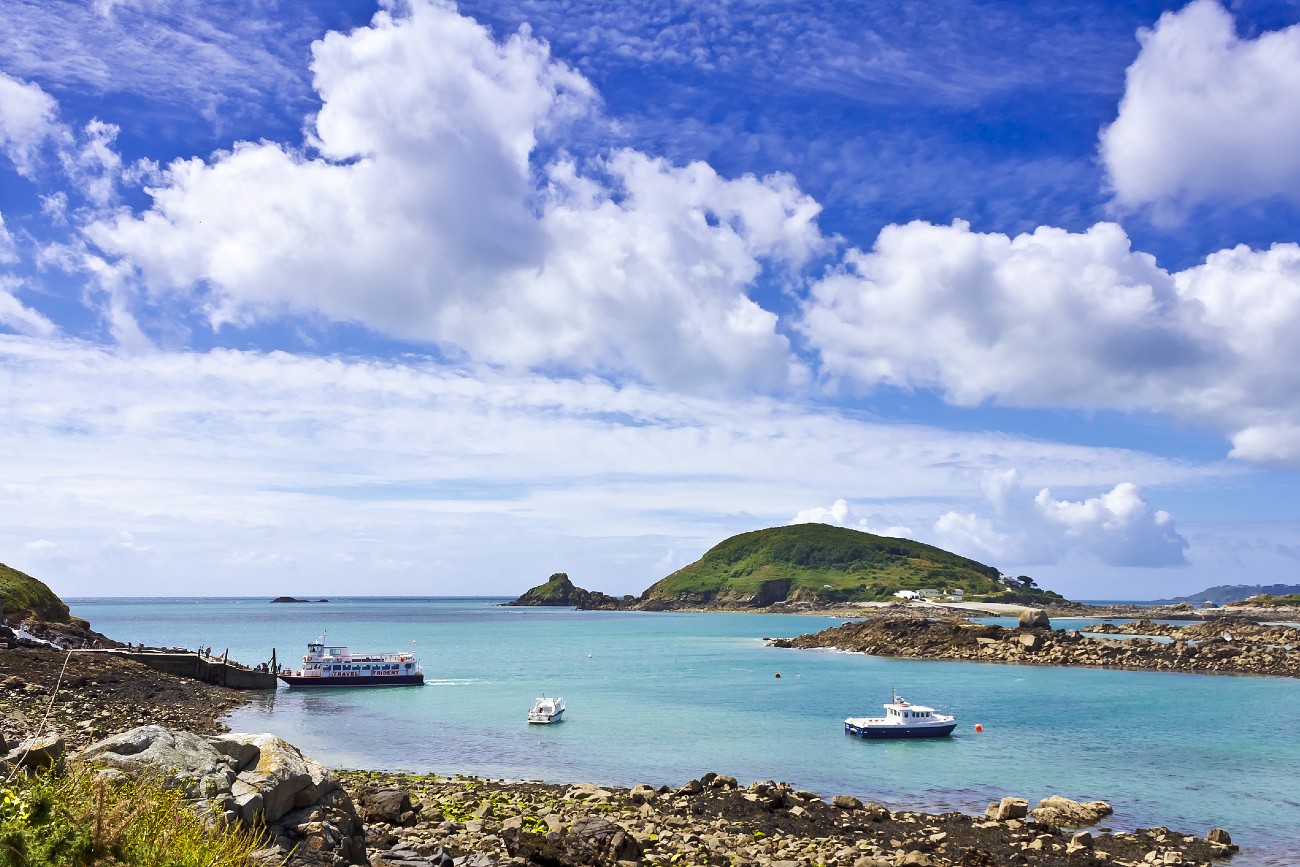
View of the Channel Islands
Surviving The Channel Island’s Weather
The weather on the Channel Islands can be unpredictable, especially in the winter season. Clear skies may suddenly turn stormy with weather blown in from the sea. The stormy, rainy weather may last an hour and then transform back to clear sunny skies or last for a few days.
The bottom line for anyone looking to spend time on the Islands is to always expect the unexpected regarding the weather.
Survival Skills Needed For Channel Island Weather
The weather in the Channel Islands is volatile and can change unexpectedly, especially for non-residents who have not yet learned to read the signs.
In the summer season, always carry a windbreaker with you or a garment that can keep the rain off you until you can find shelter. If you are out on the water, head for shore immediately once you notice a change in the weather. The wind and seas can become rough and stormy surprisingly fast!
Conclusion
The Channel Islands are a beautiful place to live and work, but like any island, the remote location comes with some unique challenges, especially for our modern lifestyle.
Being aware of these challenges and learning the survival skills needed to accommodate these challenges in your lifestyle go a long way to make your enjoyment of the island lifestyle all the more satisfying!
Are you planning a trip to Guernsey? Then you should not miss the following article: How to see the best of Guernsey in 8 hours



